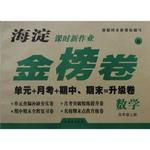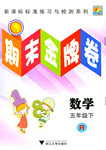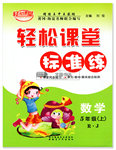
 海淀课时新作业金榜卷系列答案
海淀课时新作业金榜卷系列答案 期末金牌卷系列答案
期末金牌卷系列答案 轻松课堂标准练系列答案
轻松课堂标准练系列答案科目:高中英语 来源:2010年甘肃省高一下学期期末考试英语卷 题型:阅读理解
If you don’t use a dictionary. What should you do instead? The first thing you can do is trying to guess what the word means. Often the surrounding context gives a very clear idea of the meaning of the word. Even if you can’t work out the meaning exactly, you may be able to get a vague idea, enough to enable you to continue reading.
Sometimes It is impossible to guess the meaning of a word from the context and then you will have to decide whether the word is important enough to make it worthwhile stopping and looking it up in a dictionary or whether you can just pass it by.
Many times in your reading, you will come across words which you don’t know, but which do not prevent you from understanding all the main points of the text. You can made your dictionary use much more efficient if you only look up the words which are necessary to understand the text. and this means that you must develop the skill to decide whether the words are worth looking up.
1.The passage mainly tells us in our reading what we would do .
A.without knowledge of English
B.when we look up words in a dictionary
C.when we are guessing new words
D.without using a dictionary
2.What does the underlined word“vague”mean?
A.Mysterious. B.Not clear. C.Exact. D.Important.
3.In our reading some words we don’t know .
A.help us to understand the text well
B.don’t prevent us from understanding the main points of the text
C.will be remembered forever
D.are borrowed from other languages
4.In this passage the writer
A.advised us to use the dictionary as much as possible
B.told us not to be discouraged by the sight of a dictionary
C.gave us some advice on how to deal with these unknown words
D.introduced some ways to take notes in the course of reading
查看答案和解析>>
科目:高中英语 来源:2010年内蒙古高一下学期期末考试英语卷 题型:完型填空
完形填空:阅读下面短文,掌握其大意,然后从各题所给的四个选项中选出一个最佳答案。(共20小题,每小题1.5分)
In the past, man did not have to think about the protection of his environment. There were few people on the earth, and natural resources seemed to be 46 . Today things are 47 , the world has become too 48 . We are using up our natural resources too quickly, and at the same time we are 49 our environment with dangerous chemicals. If we continue to do this, human life on the earth 50 survive.
Everyone 51 today that if too many fish are taken from the sea, there will soon be none left. Yet, with modern fishing 52 , more and more fish are caught. We know that if too many trees are cut down, 53 will disappear and nothing will grow on the land. Yet, we 54 to use bigger and more powerful machines to 55 more and more trees.
We realize that if rivers are polluted with waste products from factories, we will die. 56 , in most countries wastes are 57 put into rivers or into the sea, and there are 58 laws to stop this. We know, too, that if the 59 of the world continues to rise at the present rate, in a few years there will not be enough 60 . What can we do to solve these problems ?
If we eat more vegetables and less 61 , there will be more food available for everyone. Land that is used to grow crops 62 five times more people than land where animals are kept. Our natural resources will 63 longer if we learn to recycle them. The world population will not rise so quickly if people use modern methods of birth 64 .
Finally, if we educate people to think about the problems, we shall have a better and clearer 65 in the future.
1.A. beautiful B. unlimited C. rare D. valuable
2.A. common B. the same C. changeable D. different
3.A. crowded B. small C. dirty D. busy
4.A. protecting B. saving C. polluting D. fighting
5.A. may not B. will not C. shall not D. could not
6.A. wonders B. realizes C. consider D. discovers
7.A. poles B. boats C. methods D. ideas
8.A mountains B. the sea C. trees D. forests
9.A. continue B. have C. ought D. go on
10.A. grow B. plant C. save D. cut down
11.A. Thus B. However
C. Generally speaking D. Therefore
12.A. still B. even C. also D. certainly
13.A. too many B. a few C. some D. few
14.A. production B. pollution C. population D. revolution
15.A. houses B. vegetables C. food D. lives
16.A. fruit B. meat C. fish D. grain
17.A. feeds B. increases C. supplies D. helps
18.A. use B. stay C. keep D. last
19.A. control B. born C. plan D. reward
20.A. nature B. sea C. planet D. forest
查看答案和解析>>
科目:高中英语 来源:2010年下学期衡阳市高一英语期末考试试题 题型:阅读理解
PART THREE READING COMPREHENSION (24分)
Directions: Read the following three passages. Each passage is followed by several questions or unfinished statements. For each of them there are 4 choices marked A, B, C and D. Choose the one that fits best according to the information given in the passage.
He was a real big spender. He stayed at the best hotel and ate in the most expensive restaurants.
To the management of Disneyland Pairs, he was a very welcome guest, even though he was only 12 years old. In the end, the police discovered that the schoolboy was living the high life on the £10,000 stolen from his father’s safe.
The boy, named Lamine, had disappeared from the family hotel in Paris 10 days earlier. While police all over France searched for him, he was living it up at a 250-a-night Disneyland hotel. He went on all the rides and went on every other attraction in the place.
And when he’d had enough of Disneyland for a while, he paid £650 to hire a large and very comfortable car which is usually used by very rich or important people to take him to a park for a day. Then he was driven back to Disneyland, where he treated new-found friends to expensive rides and dinner. By the time the truth about him was discovered, Lamine had spent £7,000 of his father’s money.
41. What does the underlined phrase “ high life”(paragraph 2) probably mean?
A. A way of living that involves spending a lot of money.[来源:学|科|网]
B. A way of living that is as good as that of other people.
C. A way of living that draws attention from the police.
D. A way of living that is envied by young and rich people.
42. What was the possible reason that the police all over France searched for Lamine?
A. The police found that Lamine stole his father’s money and ran away.
B. His family found that the boy was lost and called the police for help.
C. The police thought that it was dangerous to live an expensive life.
D. The family wanted Lamine to go back to school.
43. Why was Lamine a very welcome guest of Disneyland Paris?
A. Because he was only 12 years old.
B. Because he liked the riders in the Disneyland.
C. Because he made the Disneyland famous.
D. Because he spent a lot of money in Disneyland.
44. Which of the following statements is true?
A. Lamine moved from one expensive hotel to another with his father’s money.
B. The police began to search Lamine when they discovered that he stole his father’s money.
C. Lamine was found ten days after he left his parents.
D. Lamine had made some new friends and went to a park with them.
查看答案和解析>>
科目:高中英语 来源:2010届三轮回扣语法专项训练(定语从句) 题型:单项填空
He failed in the exam, ____ proves that he wasn’t working hard enough.
|
A.which |
B.what |
C.it |
D.that |
查看答案和解析>>
科目:高中英语 来源:20102011黑龙江庆安三中高一下学期期中英语试题 题型:完型填空
Dick was born in a small town. He was a very clever boy, but his 36 was very poor, so he had to work in his 37 time, and during his holidays too, to pay for his 38 . In spite of this, he 39 to get to the university. But it was so 40 to study there that during the holidays he had to get two jobs at the 41 time so as to earn 42 money for his studies.
One summer he managed to get a job in a butcher’s shop during the daytime and 43 in a hospital at night, In the shop, he learned to cut meat up quite nicely and the butcher liked him very much and often 44 him do all the serving.
In the hospital, on the other hand, he was, 45 , allowed to do the 46 jobs, like helping to lift 47 and to carry them from one part of the hospital to another.
One evening at the hospital, Dick had to help to carry a woman from her bed to the 48 room. The woman 49 to be one of his 50 who used to buy meat at the butcher’s shop. She was already feeling 51 at the thought of the operation 52 he came to get her. And when she 53 Dick, it seemed to her 54 that nearly finished her.
“ No, no!” she cried. “Not the butcher! I won’t be operated on by the butcher!” And she 55 her eyes painfully.
1. A. home B. house C. family D. village
2. A. spare B. rest C. active D. lunch
3.. A. toys B. education C. school D. clothes
4. A. managed B. tried C. failed D. wasn’t able
5. A. free B. hard C. easy D. expensive
6.. A. other B. last C. different D. same
7. A. enough B. much C. a little D. most
8. A. the others B. another C. others D. other
9. A. didn’t have B. helped C. let D. begged
10.A. in all B. actually C. of course D. sometimes
11.. A. light B. simplest C. difficult D. different[来
12. A. doctors B. knives C. tools D. people
13. A. living B. sitting C. operating D. waiting
14.A. happened B. hated C. seemed D. remembered
15.. A. neighbours B. teachers C. friends D. customers
16. A. unhappy B. sad C. surprised D. frightened
17. A. before B. after C. until D. for
18. A. spoke to B. told C. saw D. refused
19. A. as if B. even if C. what if D. if only
20.. A. started B. glared C. opened D. shut
查看答案和解析>>
湖北省互联网违法和不良信息举报平台 | 网上有害信息举报专区 | 电信诈骗举报专区 | 涉历史虚无主义有害信息举报专区 | 涉企侵权举报专区
违法和不良信息举报电话:027-86699610 举报邮箱:58377363@163.com